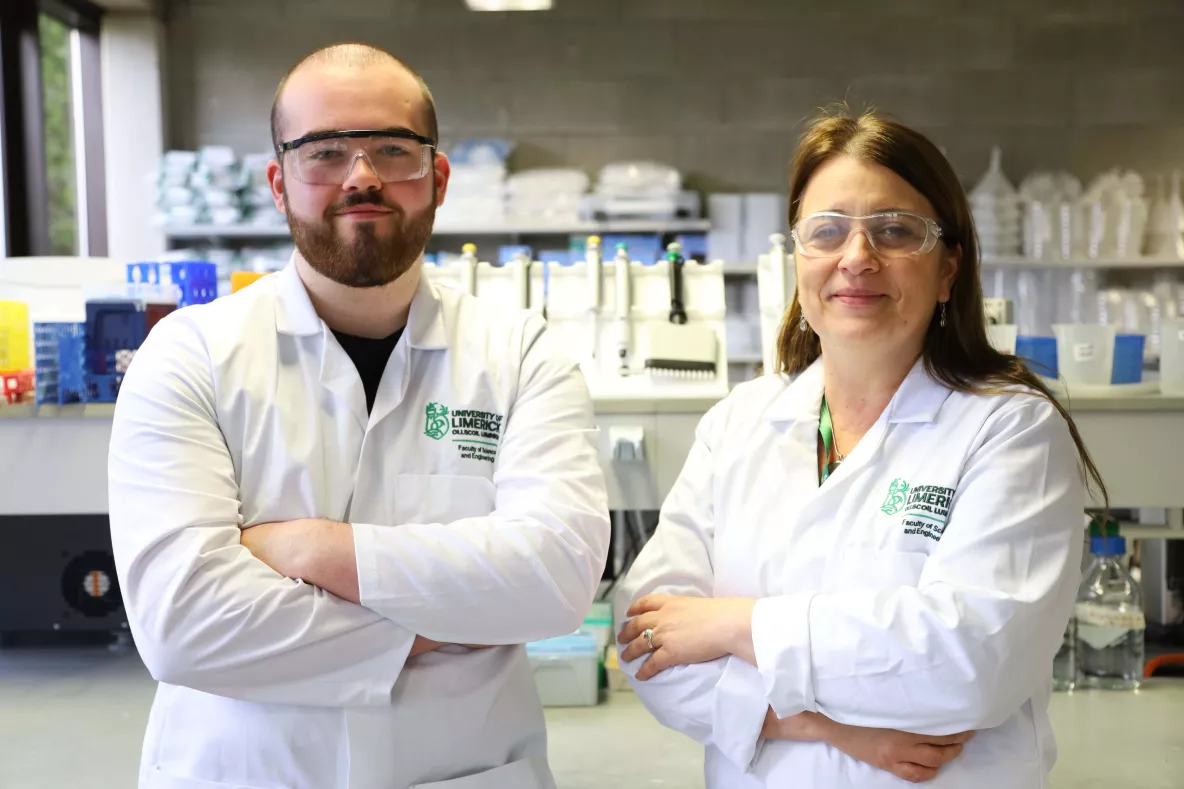

Bioscience student Max Sherry is participating in the summer research programme at the Faculty of Science and Engineering. We recently met with Max to ask about the programme and what he was investigating.
Course: BSc in Bioscience
Supervisor: Associate Professor Fabiana A Hoffmann Sarda
Name of Research Project/Activity: how molecular docking can be used in tandem with in vitro studies to predict and verify or investigate the mechanisms of observed reactions during experimentation
Why did you decide to study Bioscience at UL?
Ever since I was a child I have been intrigued by nature. How the natural world works and how important every living thing is no matter how big or small to the persistence of life itself. I naturally fell into choosing biology for the leaving cert and then biological and chemical sciences in UL which led into studying for a degree in bioscience. UL has been the perfect place for me to explore my ever-burning interest in the science behind nature.
What motivated you to apply for the Summer Bursary Programme?
One aspect I found attractive was the opportunity to get an idea of what it would be like to do a postgraduate course or an idea of what a career in research would be like. Another side of it was the chance to do some of my own research, learning how to do a project while getting guidance from a supervisor sounded like a wonderful experience.
What are you doing as part of your research here at UL?
I am researching how molecular docking can be used in tandem with in vitro studies to predict and verify or investigate the mechanisms of observed reactions during experimentation. In this case, first repeating the methods and trying to acquire the same results of past studies that used molecular docking and second using that knowledge to apply to experimentation my supervisor is involved in.
What skills have you developed over the summer?
It has taught me skills that are transferrable to any field of work, communicating with others, particularly through emails and scheduled meetings, and it gives you the opportunity of independent work where you are held responsible for your own work and progress. Technically, the Bursary has given me the chance to perform molecular docking, helping me to understand it is intricacies, as well as improving my skills using a computer.
What has this experience taught you and what would you recommend it to others?
If you are interested in a research career this gives you a great sample of what it may be like. It gives an insight into the world of postgraduates and researchers, which, as an undergraduate is usually the work the is done behind the curtain.
What are your future career plans, would you consider a career in research?
I plan on at least doing a post-graduate course after my undergraduate in UL. I hope that doing a postgraduate will lead me into a career in research that will enable me to aid humanity's hunt for knowledge. The Summer Bursary programme has given me a deeper insight into the research communities inner mechanisms. The distinct roles people can have, the pressures and trials researchers routinely face in order to do their work and other minor particulars that affect researchers. It allows me to make a more informed and confident decision about which path I choose to take through life.
Postal Address: Science & Engineering Faculty Office, Lonsdale Building, 1st Floor, University of Limerick, Limerick, Ireland
Email: scieng@ul.ie
Phone: +353 (0)61 202109 or +353 (0)61 202642